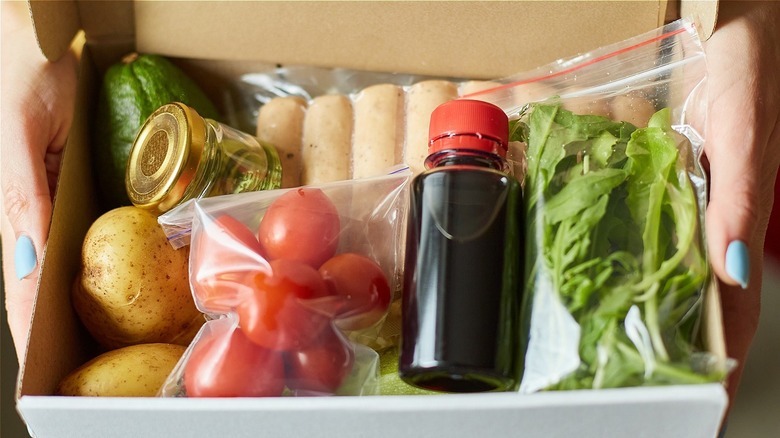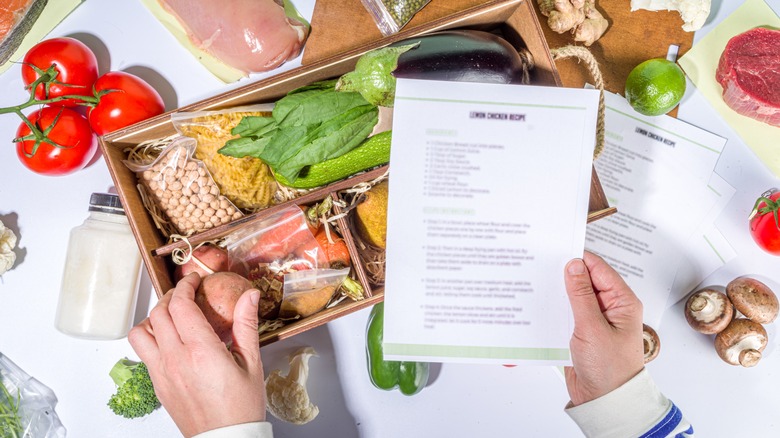A Recent Study Could Reveal A Potential Danger In Meal Kit Deliveries
Meal kit delivery services have spiked in popularity over the last few years. Many people turned to them during the coronavirus pandemic, when grocery stores were closed and there were food shortages aplenty. Now, despite the fact that many places have reopened, meal deliveries are still all the rage, thanks to how easy and convenient they are. You get all of the ingredients you need — plus easy-to-follow recipes — to whip up a homemade dinner without ever having to step foot outside of your house or brave grocery store checkout lines. According to Statista, the meal kit industry is expected to grow to sales of more than $13 billion in 2022. Progressive Grocer reports that 48% of Americans have tried a meal kit at least once in the past year.
Many of the most well-known meal kit delivery services — like Hello Fresh and Blue Apron — pride themselves on their fresh ingredients, healthy recipes, and options for all types of diets from plant-based to paleo. Some, like Daily Harvest, even claim to be completely organic. However, there may be a dark side to meal kits. A recent North Carolina State University study (via Food Safety News) revealed an alarming fact about the services — here's what to know before you order.
The food inside your kit may not be safe to eat
While it's certainly convenient to get a box of ready-to-cook ingredients delivered to your doorstep, it might not be as safe as you think, especially if you live somewhere warmer. A new study from North Carolina State University examined 72 meal kits from 12 of the biggest companies and found that more than 76% of the boxes included at least one item that was above the 40-degree Fahrenheit level where food is deemed safe to eat (via Food Safety News). What's even more shocking is that 50% of the boxes contained meat that was out of the food safety zone — and there's no way to know whether your chicken was too warm for 10 minutes or five hours. "At present, there is no oversight or regulations, so consumers are left to trust the design, packaging, and shipping policies of the vendor and delivery companies," Joseph Battoe, Varcode CEO, explained to Food Safety News.
The experts at the Centers for Disease Control and Prevention (CDC) have provided guidelines and tips on how to handle meal kit deliveries safely. They recommend arranging delivery for when someone is home and checking the temperature of the food with a thermometer before unpacking it to check that it's still okay to consume.

